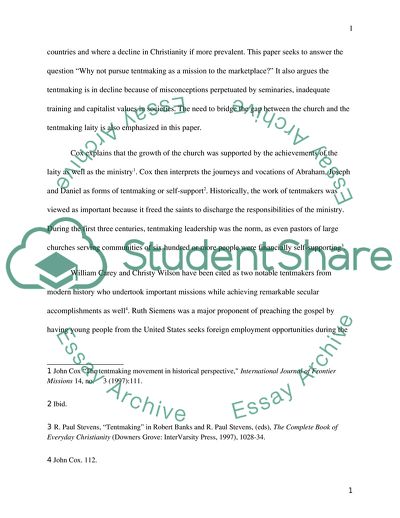Cite this document
(The Place of the Church in Tentmaking Report Example | Topics and Well Written Essays - 3250 words, n.d.)
The Place of the Church in Tentmaking Report Example | Topics and Well Written Essays - 3250 words. https://studentshare.org/religion-and-theology/1846690-the-art-of-tentmaking-a-dying-breed
The Place of the Church in Tentmaking Report Example | Topics and Well Written Essays - 3250 words. https://studentshare.org/religion-and-theology/1846690-the-art-of-tentmaking-a-dying-breed
(The Place of the Church in Tentmaking Report Example | Topics and Well Written Essays - 3250 Words)
The Place of the Church in Tentmaking Report Example | Topics and Well Written Essays - 3250 Words. https://studentshare.org/religion-and-theology/1846690-the-art-of-tentmaking-a-dying-breed.
The Place of the Church in Tentmaking Report Example | Topics and Well Written Essays - 3250 Words. https://studentshare.org/religion-and-theology/1846690-the-art-of-tentmaking-a-dying-breed.
“The Place of the Church in Tentmaking Report Example | Topics and Well Written Essays - 3250 Words”. https://studentshare.org/religion-and-theology/1846690-the-art-of-tentmaking-a-dying-breed.


